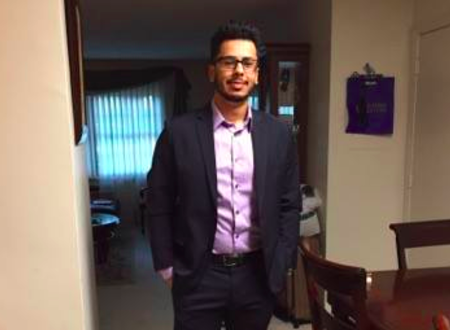The Diversity Task Force gave their final presentation to the Suffolk community this past Friday. The presentation outlined the recommendations they have made in the final report after a two year-long joint effort of surveying and evaluating the university’s climate that they will be submitting to Acting President Marisa Kelly in May. Once submitted, the Task Force will disband, having accomplished their goal, according to Chairwoman of the Task Force Micky Lee.
The Task Force has come up with a number of strategies, some of which are still debated amongst the members. However, they are sure of making students, faculty and staff receive the proper training in matters of diversity and inclusion.
“These are solid foundations for where Suffolk currently stands. It’s been a year and I think we are starting to open our eyes a little more,” said Levi Smith, a junior business major and student member of the Task Force. “One thing to understand, we don’t have a standing committee that does things like this. We grabbed some of the best students and staff [and faculty], put them in a room and said we need to talk about some issues here at the university.”
The position they have yet to reach a consensus on is whether the university should create a position that would report to the president and tentatively titled Vice President of Inclusion, Diversity and Equity. Along with this position, the Task Force hopes to create a Division, or Office, of Inclusion, Diversity and Equity, which will oversee the Commission of Diversity Affairs (CDA). The CDA was suspended in 2015 by former President Margaret McKenna and the Task Force has recommended it be reinstated since the bylaws are already in place.
The Task Force noted the concerns of the Suffolk community regarding bias incidents and proposed the university create an pilot program for an Office of Ombuds starting in the Fall semester of 2017. This office will be independent from upper administration and hire part time staff from within the university.
“What we found [is] 15 colleges that were similar to Suffolk in many ways,” said Director of Events Jennifer Bonardi and member of the subcommittee on ombuds for the Task Force. “The office [in the other universities] resolves conflicts, it explores options for resolving conflicts with informal steps such as services outside the appeal process and other resources if necessary.”
The Office may have a possible connection to International Ombuds Administration (IOA) and follow the same principles that make the IOA successful.
“If the upper administration decides that we are in need of an ombuds person based on the climate poll and the research we present, it would come down to them hiring somebody for the position,” said Bonardi. “Ideally, they would start in the fall when the rest of us start the academic year, which is as complicated as it gets.”
The Task Force also recommended the university create a new initiative that will develop a program for predoctoral, or postdoctoral students, to teach courses at Suffolk related to their research interests. The advantages for such a program, as stated by the Task Force, is the creation of a “pipeline” that will expand research and set the university apart from its peers.
Establishing better methods for community building and professional development are concerns raised by University staff, according to the Task Force. The Task Force recommended the university provide more workshops that revolve around bias and classroom incidents, while also continuing the effort provided by Suffolk’s Unity Events.
Editor’s Note: Nathan Espinal is a Diversity Peer Education in the Office of Diversity Services.














